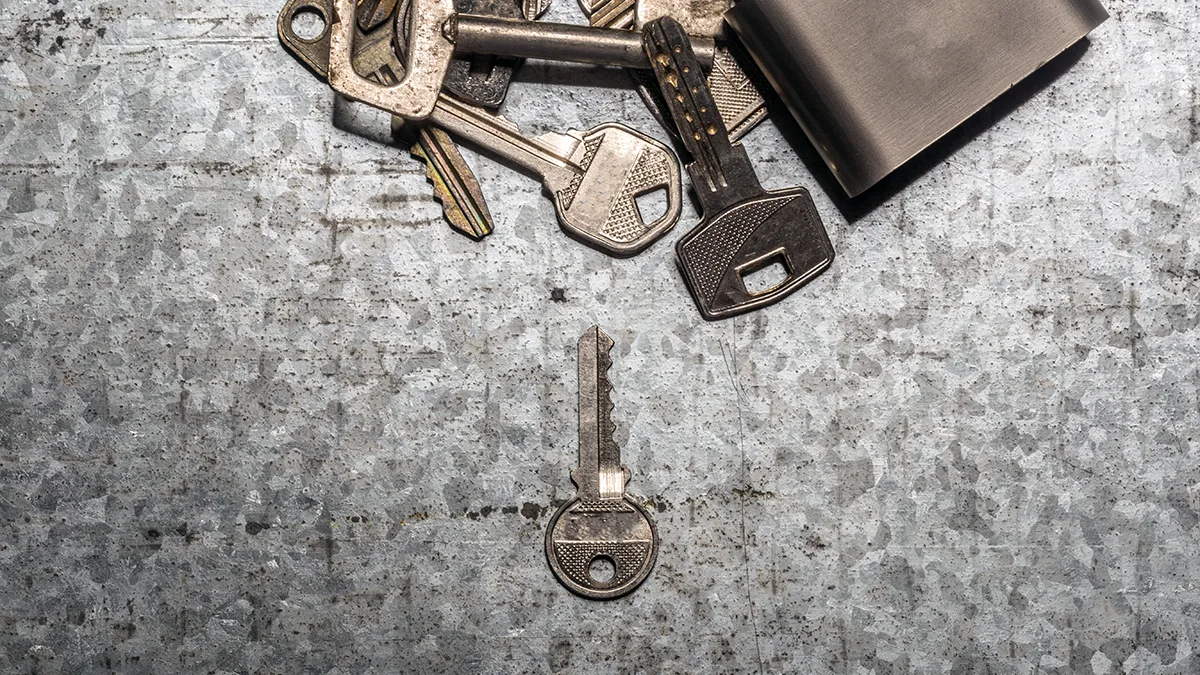The Hidden Costs of DIY Lock Repairs and How to Avoid Them. In a bustling city…
The Future of Home Security: Locksmiths and Smart Technology
The Future of Home Security: Locksmiths and Smart Technology. As we look towards 2025, the landscape of home security is evolving rapidly, driven by advancements in technology and changing consumer expectations.
In London, where urban living presents unique challenges and opportunities, the integration of smart technology with traditional locksmith services is shaping the future of home security. This article delves into the trends, innovations, and implications for homeowners and locksmiths alike.
The Changing Face of Home Security
Home security has always been a priority for homeowners, but the methods and technologies employed are undergoing a significant transformation. Traditionally, security relied heavily on physical locks and keys, with locksmiths playing a crucial role in ensuring the safety of homes.
However, as we approach 2025, the rise of smart technology is redefining what it means to secure a home.
Smart Locks and Keyless Entry Systems
One of the most notable advancements in home security is the emergence of smart locks. Unlike traditional locks, smart locks offer keyless entry systems that can be controlled via smartphones, tablets, or even voice commands.
These devices allow homeowners to lock and unlock their doors remotely, monitor access, and receive real-time notifications when someone enters or exits their home.
In London, where convenience is paramount, smart locks are gaining popularity. Homeowners appreciate the ability to grant temporary access to visitors or service providers without the need for physical keys.
This feature is particularly beneficial in shared living environments, such as flats and apartments, where multiple occupants may require access.
Integration with Home Automation Systems
The future of home security is not just about individual devices; it is about creating a cohesive ecosystem. Smart locks can be integrated with broader home automation systems, allowing homeowners to control lighting, security cameras, and alarms from a single interface.
This integration enhances security by enabling users to create customised security protocols, such as automatically locking doors at a certain time or turning on outdoor lights when someone approaches.
As Londoners increasingly adopt smart home technology, locksmiths are adapting to this new landscape.
Many are now offering installation and maintenance services for smart locks and home automation systems, ensuring that homeowners can enjoy the benefits of these innovations without compromising security.
The Role of Traditional Locksmiths in a Smart World
While smart technology is revolutionising home security, traditional locksmiths remain an essential part of the equation.
The expertise and skills of locksmiths are invaluable, especially when it comes to understanding the complexities of both traditional and modern locking mechanisms.
Training and Adaptation
As we approach 2025, locksmiths in London are undergoing training to stay abreast of the latest developments in smart technology.
This includes learning about the installation and maintenance of smart locks, as well as understanding how these devices interact with other home security systems.
By combining their traditional skills with new technology, locksmiths can provide comprehensive security solutions that cater to the diverse needs of homeowners.
Emergency Services and Security Assessments
In addition to installation services, locksmiths continue to play a critical role in emergency situations. Whether a homeowner is locked out or has experienced a break-in, locksmiths are often the first point of contact.
Their ability to quickly assess security vulnerabilities and recommend appropriate measures is invaluable, particularly in urban areas like London, where crime rates can fluctuate.
Locksmiths can also conduct security assessments, identifying potential weaknesses in a homeowner’s security setup.
This proactive approach is essential in an era where smart technology can be both a boon and a potential vulnerability. By working closely with homeowners, locksmiths can help them make informed decisions about their security options.
The Impact of Cybersecurity on Home Security
As smart technology becomes more prevalent in home security, the importance of cybersecurity cannot be overstated.
Smart locks and home automation systems are vulnerable to hacking and cyber-attacks, which can compromise the safety of a home. As we move towards 2025, it is crucial for homeowners to understand the cybersecurity risks associated with smart devices.
Best Practices for Homeowners
To mitigate these risks, homeowners should adopt best practices for cybersecurity. This includes changing default passwords, regularly updating software, and using two-factor authentication where available.
Locksmiths can play a pivotal role in educating homeowners about these practices, helping them to secure not only their physical homes but also their digital environments.
Collaboration Between Locksmiths and Cybersecurity Experts
The future of home security will likely see greater collaboration between locksmiths and cybersecurity experts.
By working together, these professionals can develop comprehensive security solutions that address both physical and digital threats.
This collaboration can help establish a new standard for home security, ensuring that homeowners in London and beyond can feel safe and secure in their homes.
The Rise of DIY Security Solutions
Another trend shaping the future of home security is the rise of DIY security solutions. Many homeowners are opting for self-installed security systems that allow them to take control of their home security.
These systems often include smart locks, cameras, and alarms that can be easily set up without professional assistance.
While DIY solutions offer convenience and cost savings, they also come with challenges. Homeowners may lack the expertise to properly install and configure these systems, potentially leaving their homes vulnerable.
In this context, locksmiths can provide valuable support by offering consultation services, ensuring that homeowners can effectively implement DIY solutions without compromising security.
The Future of Locksmithing in London
As we look ahead to 2025, the role of locksmiths in London will undoubtedly evolve. The integration of smart technology into home security will require locksmiths to adapt their services and skill sets. However, the core principles of trust, reliability, and expertise will remain unchanged.
Embracing Innovation
Locksmiths who embrace innovation will be well-positioned to thrive in this changing landscape.
By offering a combination of traditional locksmith services and modern smart technology solutions, they can cater to a diverse clientele. This adaptability will be essential for locksmiths looking to maintain relevance in an increasingly tech-driven world.
Building Relationships with Clients
In addition to technical expertise, building strong relationships with clients will be crucial for locksmiths in the future.
As homeowners become more educated about their security options, they will seek out locksmiths who can provide personalised advice and solutions. By fostering trust and open communication, locksmiths can establish themselves as indispensable partners in home security.
The future of home security in London is poised for transformation as we approach 2025.
The integration of smart technology with traditional locksmith services presents both challenges and opportunities.
Homeowners can benefit from enhanced convenience and security, while locksmiths can expand their offerings and adapt to a changing market.
As we navigate this evolving landscape, it is essential for both homeowners and locksmiths to stay informed about the latest trends and developments.
By embracing innovation and prioritising cybersecurity, we can work together to create safer homes for all. The future of home security is bright, and with the right approach, we can ensure that it remains a priority for generations to come.




Comments (0)